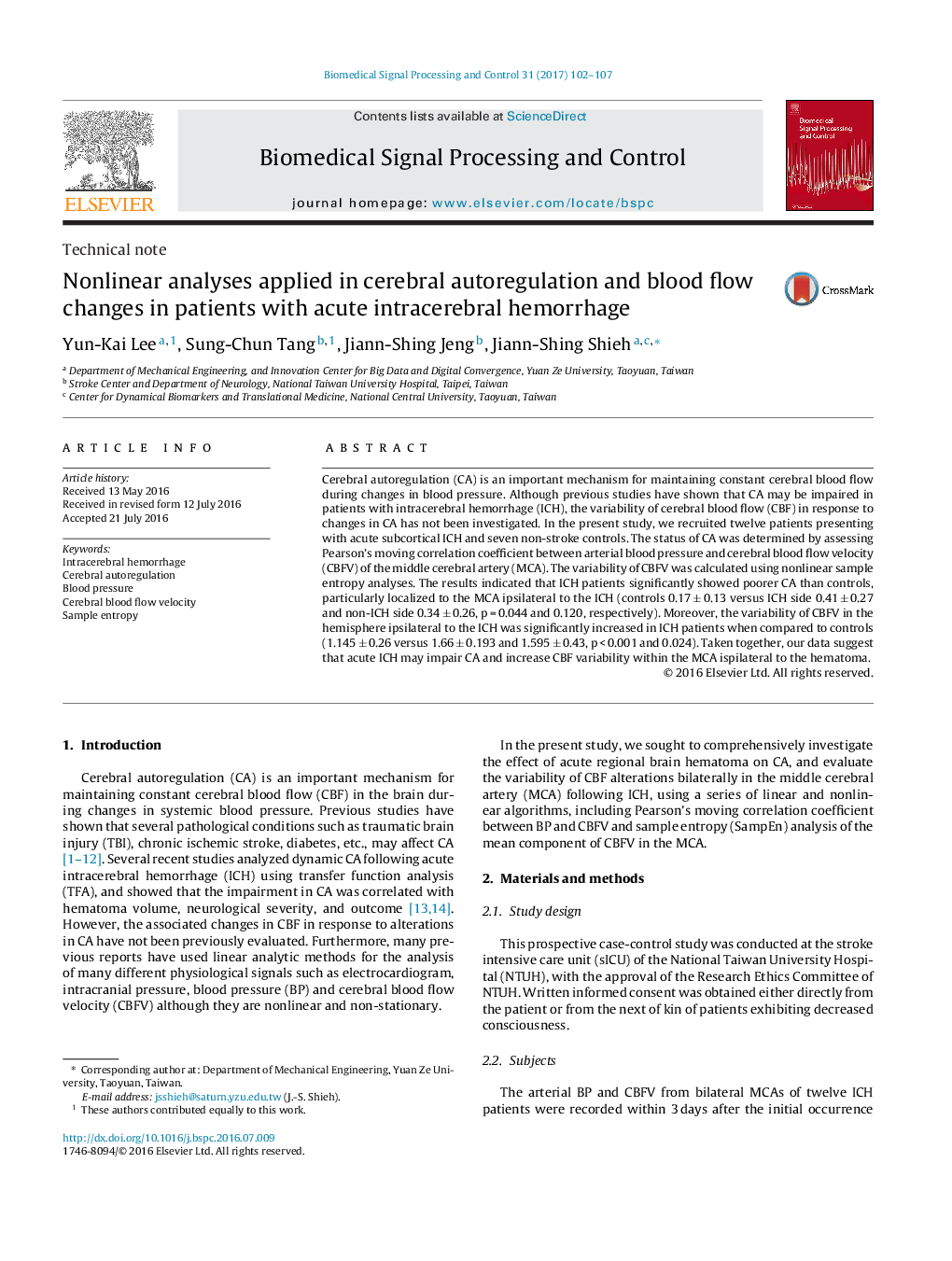| Article ID | Journal | Published Year | Pages | File Type |
|---|---|---|---|---|
| 6951050 | Biomedical Signal Processing and Control | 2017 | 6 Pages |
Abstract
Cerebral autoregulation (CA) is an important mechanism for maintaining constant cerebral blood flow during changes in blood pressure. Although previous studies have shown that CA may be impaired in patients with intracerebral hemorrhage (ICH), the variability of cerebral blood flow (CBF) in response to changes in CA has not been investigated. In the present study, we recruited twelve patients presenting with acute subcortical ICH and seven non-stroke controls. The status of CA was determined by assessing Pearson's moving correlation coefficient between arterial blood pressure and cerebral blood flow velocity (CBFV) of the middle cerebral artery (MCA). The variability of CBFV was calculated using nonlinear sample entropy analyses. The results indicated that ICH patients significantly showed poorer CA than controls, particularly localized to the MCA ipsilateral to the ICH (controls 0.17 ± 0.13 versus ICH side 0.41 ± 0.27 and non-ICH side 0.34 ± 0.26, p = 0.044 and 0.120, respectively). Moreover, the variability of CBFV in the hemisphere ipsilateral to the ICH was significantly increased in ICH patients when compared to controls (1.145 ± 0.26 versus 1.66 ± 0.193 and 1.595 ± 0.43, p < 0.001 and 0.024). Taken together, our data suggest that acute ICH may impair CA and increase CBF variability within the MCA ispilateral to the hematoma.
Keywords
Related Topics
Physical Sciences and Engineering
Computer Science
Signal Processing
Authors
Yun-Kai Lee, Sung-Chun Tang, Jiann-Shing Jeng, Jiann-Shing Shieh,
